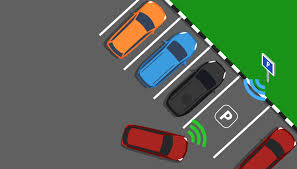

As cities grow and urbanization accelerates, finding parking has become an increasingly frustrating challenge for many residents and visitors. The limited availability of parking spaces, especially during peak hours, leads to wasted time, increased traffic congestion, and higher emissions as drivers circle endlessly searching for spots.
To address this problem, researchers have proposed an innovative blockchain-based solution called Parkchain (Jennath et al., 2019). This system aims to create smart parking pools by allowing individuals to rent out their unused land as parking spaces, all managed through a transparent blockchain platform.
How Parkchain Works
The core idea behind Parkchain is to use blockchain technology and smart contracts to facilitate a secure, decentralized parking marketplace. Here’s how it works:
- Land Registration: Property owners can register their unused land suitable for parking. The system verifies ownership and location details.
- Token Generation: For validated properties, the system generates non-fungible tokens (NFTs) representing unique parking lots.
- Contractor Bidding: Contractors can bid to lease these parking tokens for a set period.
- Smart Contracts: Once a bid is accepted, smart contracts are used to enforce agreements between all parties – landowners, contractors, and the governing body.
- IoT Monitoring: IoT devices and cameras are used to monitor parking spaces in real-time.
- Mobile App: Users can find and book available parking spots through a mobile application.
Key Benefits
Parkchain offers several potential benefits:
- Increased Parking Availability: By unlocking unused private land for parking, the system can significantly increase the number of available spaces.
- Transparency: The use of blockchain ensures all transactions and agreements are transparent and immutable.
- Efficiency: Smart contracts automate many processes, reducing administrative overhead.
- New Revenue Streams: Landowners can monetize their unused property.
- Reduced Traffic and Emissions: Easier parking access means less time spent searching for spots.
Technical Implementation
The system is built on the Ethereum blockchain, using ERC-721 tokens to represent unique parking lots. Smart contracts written in Solidity handle the business logic, including bidding, revenue sharing, and contract enforcement. An IoT system using Raspberry Pi and cameras monitors parking space usage, while a mobile app provides the user interface for drivers.
Challenges and Considerations
While Parkchain presents an innovative solution, there are challenges to consider:
- Regulatory Hurdles: The legal framework for such a system, especially regarding smart contracts and tokenization of real estate, is still evolving in many jurisdictions.
- Initial Investment: Contractors need to invest in setting up the parking infrastructure, which could be a barrier to entry.
- Privacy Concerns: The system involves monitoring of parking spaces, which could raise privacy issues.
Conclusion
Parkchain represents an exciting application of blockchain technology to solve a real-world urban problem. By creating a decentralized, transparent system for parking management, it has the potential to make our cities more efficient and livable. As smart city initiatives continue to grow, solutions like Parkchain could play a crucial role in shaping the urban landscapes of the future.
References:
Jennath, H.S., Adarsh, S., Chandran, N.V., Ananthan, R., Sabir, A. and Asharaf, S. (2019). Parkchain: A Blockchain Powered Parking Solution for Smart Cities. Frontiers in Blockchain, 2, p.6.
If you’re intrigued by how technology is transforming urban living, you might be interested in exploring related innovations. Speaking of **blockchain technology**, you can learn more about its principles and applications by visiting Blockchain. This decentralized system is not only revolutionizing parking solutions but also reshaping industries worldwide. Additionally, the concept of **smart cities** is pivotal in this context. To understand how these urban ecosystems are evolving, check out Smart City. Lastly, if the rise of **urbanization** and its associated challenges fascinate you, you may find this Urbanization article insightful in understanding the global shift towards densely populated city centers and the need for innovative solutions like Parkchain.
If you’re fascinated by the concept of smart cities and innovations addressing urban challenges, you might be interested in exploring how blockchain technology is transforming various sectors. Learn more about the principles and applications of this revolutionary technology by reading the Wikipedia Blockchain article. Additionally, you can delve into the evolving landscape of urban ecosystems by checking out the Wikipedia Smart City article. As urbanization continues to shape our world, you may also find the insights in the Wikipedia Urbanization article particularly enlightening, offering a deeper understanding of the shift towards densely populated city centers and the need for cutting-edge solutions like Parkchain.